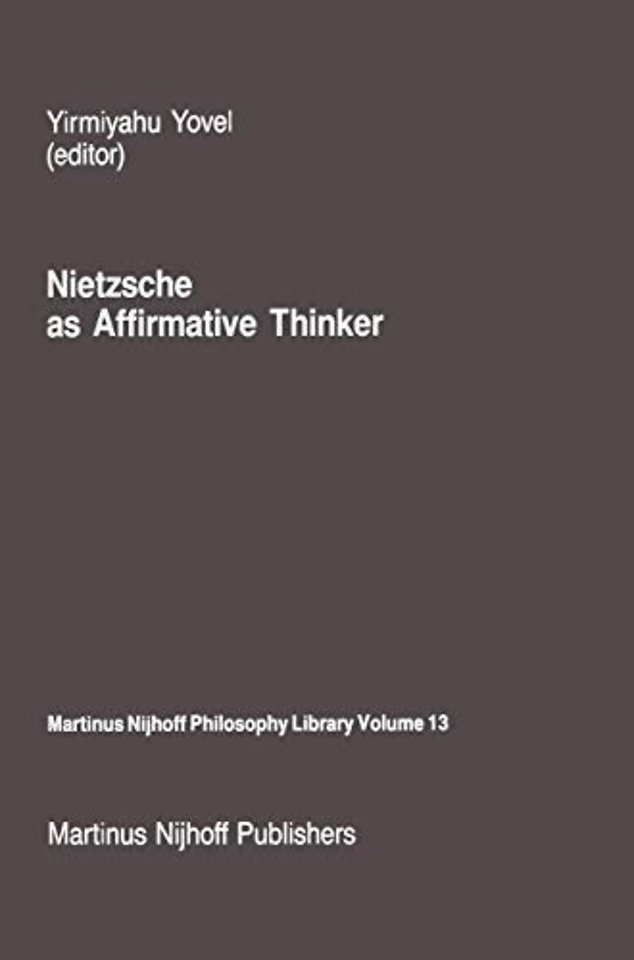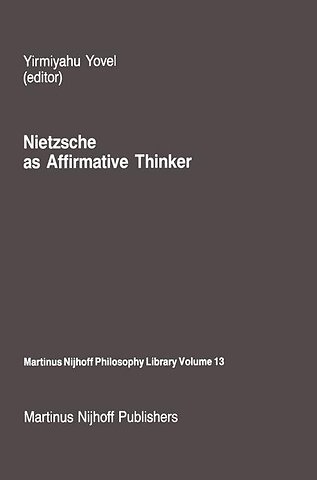Nietzsche as Affirmative Thinker
Papers Presented at the Fifth Jerusalem Philosophical Encounter, April 1983
Samenvatting
The full century that has elapsed since Nietzsche was at the height of his work did not obliterate his impact. In many ways he is still a contemporary philosopher, even in that sense of 'contemporary' which points to the future. We may have outgrown his style (always, however, admirable and exciting to read), his sense of drama, his creative exaggeration, his sometimes flamboy ant posture of a rebel wavering between the heroic and the puerile. Yet Nietzsche's critique of transcendental values and, especially, his attack on the inherited conceptions of rationality remain pertinent and continue to pro voke anew cultural critique or dissent. Today Nietzsche is no longer discussed apologetically, nor is his radicalism shunned or suppressed. That his work remains the object of extremely diverse readings is befitting a philosopher who replaced the concept of truth with that of interpretation. It is, indeed, around the concept of interpretation that much of the rem:wed interest in Nietzsche seems to center today. Special emphasis is being laid on his manner of doing philosophy, and his views on interpretation and the genealogical method are often re-read in the context of contemporary hermeneutics and "deconstructionist" positions.

